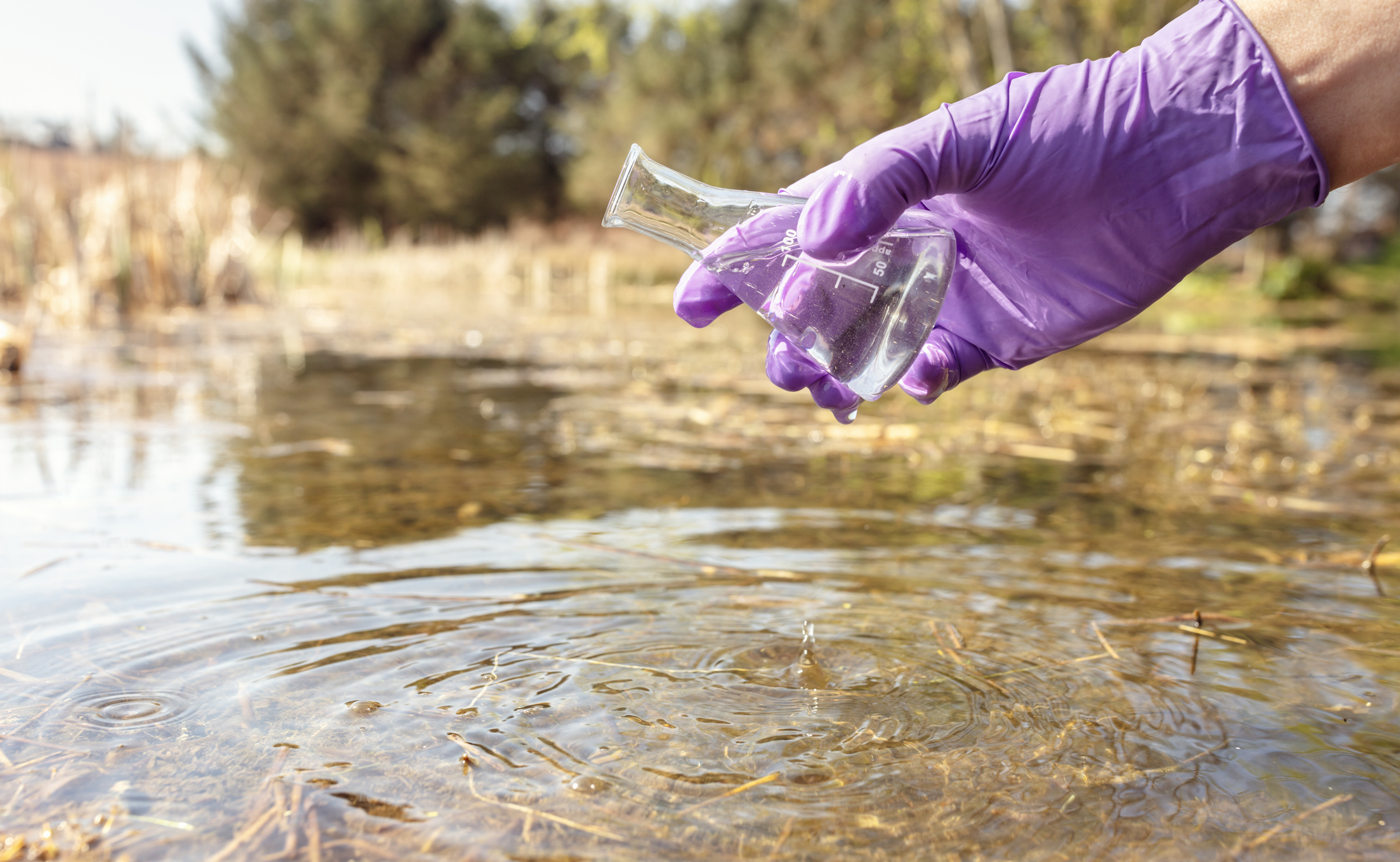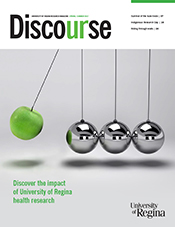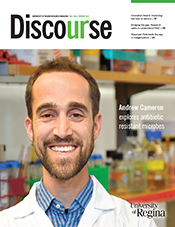Tarun Katapally is a patient-oriented research leader and professor at the University of Regina’s Johnson Shoyama Graduate School of Public Policy. (Photo by Dave Stobbe)

In the year or so since the first case of COVID-19 was reported in China, Indigenous communities have faced unique health risks and challenges, underscoring the need for Indigenous communities to assess their own health risks so that they can make better decisions about their communities.
That is what Tarun Katapally, a patient-oriented research leader and professor at the University of Regina’s Johnson Shoyama Graduate School of Public Policy, is seeking to accomplish through the development of a mobile phone application called CO-Away.
“The CO-Away app allows people to assess their own risk of getting COVID-19,” explains Katapally. “It's not a contact tracing app, but one that interacts with people based on their behaviour, and tells them what their risk level is.”
Katapally is partnering with the community of Île-à-la-Crosse, Saskatchewan, to co-create and pilot the app. The overarching goal is for Indigenous communities to use big data and digital health innovation for Indigenous self-governance, determination, and data sovereignty.
In healthcare, big data - which is large amounts of information - can be analyzed to provide knowledge about a population or an individual to enhance patient care, research new advancements, reduce costs, and even cure or prevent the onset of diseases.
“Our work with Dr. Katapally’s team is bringing cutting-edge innovation to our municipality. CO-Away is a first step in how we want to transform Indigenous governance using big data," says Île-à-la-Crosse’s Mayor, Duane Favel.
Through ethical surveillance, Katapally engages with participants as citizen scientists so that they are contributing to the research process. Collecting this type of data supports the development of evidence-based strategies for risk mitigation and policy and behaviour interventions.
“Basically, it’s about how we can use big data so that Indigenous leaders can make better decisions for themselves and their communities,” says Katapally.
Together, they’ve established the Île-à-la-Crosse Citizen Scientists Advisory Council to help understand the specific needs of the community and guide the development of CO-Away.

The Advisory Council is made up of the town’s mayor, the director of the school division, two Elders, a social worker, and four high school students, including the junior mayor of the community.
“It's not science for the sake of science. It's communities participating in it and helping us shape it,” says Katapally.
“The community needs CO-Away. The Advisory Council is excited to engage with the citizens as they clearly see the advantages of being able to address health risks and issues in near real-time.”
Katapally notes that not much is yet known about the indirect effects of COVID-19, such as on mental health, substance misuse, and domestic violence. But through this research, his team discovered that the community wanted to address food insecurity. They’ve now created a mechanism for citizens to report their lack of access to food.
Katapally believes this platform has many more uses than for only communicable diseases. “I think it’s going to have a bigger impact,” says Katapally, “The big question is, how can we use citizen data for health or social innovation.”
While the project officially started in June, the concept is essentially a scaled-up version of Katapally’s existing Smart Platform, a digital epidemiological and citizen science platform for ethical surveillance and real-time interventions. Based on this platform, Katapally developed the global digital citizen science policy to tackle pandemics like COVID-19. Currently they are in the prototype stage, but so far the community reception has been great.
"The community needs CO-Away," says Favel. "The Advisory Council is excited to engage with the citizens as they clearly see the advantages of being able to address health risks and issues in near real-time.”
Katapally emphasizes that the project wouldn’t materialize without the partnership with Île-à-la-Crosse, and funding support from the Lung Association of Saskatchewan, the Saskatchewan Health Research Foundation, and Mitacs.

















